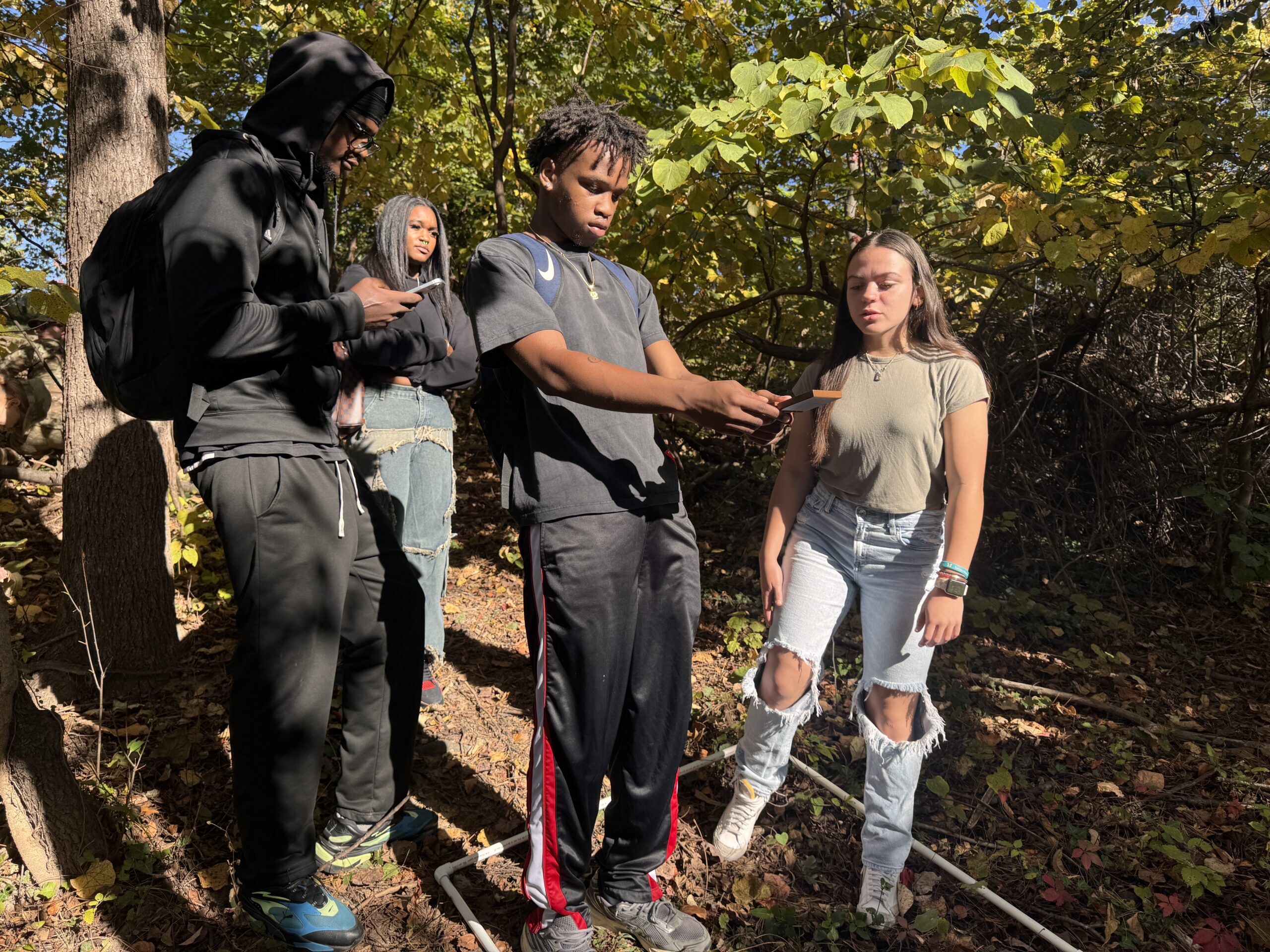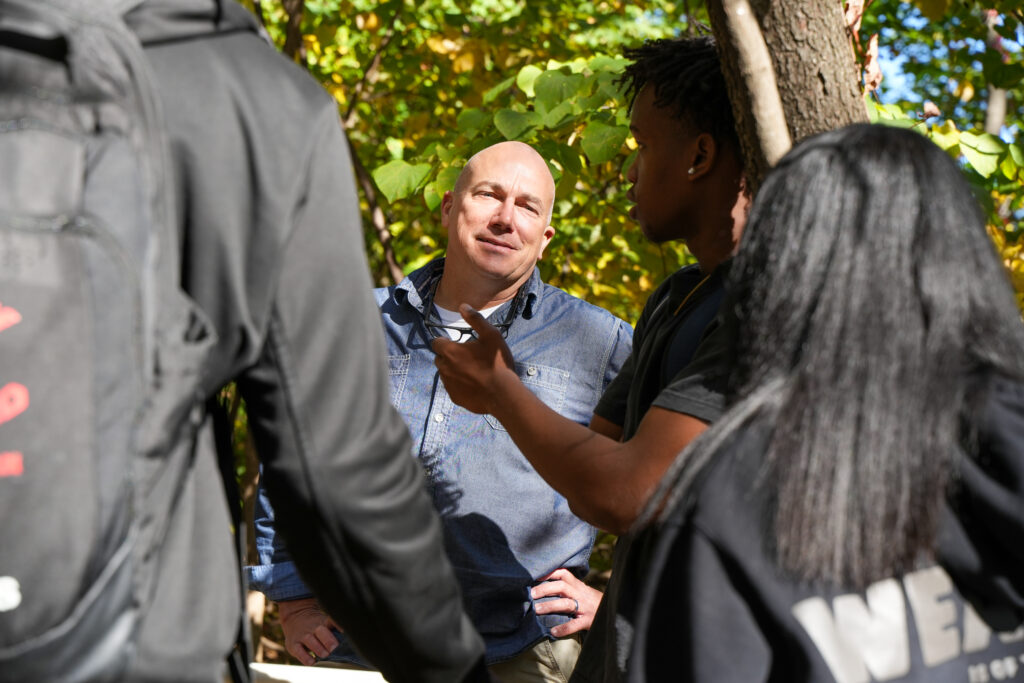Even in a small copse of trees on Cannon Hill, students make monumental discoveries about nature and learning itself.

Throughout the fall semester, students in Dr. David McLeod’s class have gathered on Cannon Hill to conduct basic scientific research about the world around them. The class is Discovery, one of the 10 core curriculum courses all MBU students will complete on their path to graduation.
McLeod, an associate professor of biology, moved between small groups, answering questions and checking their readings as they compared light levels under the trees. On this morning, students like Promyse Dent ‘29 investigated the tree canopy with a spherical densiometer — a handheld tool with a curved, gridded mirror that helps foresters and scientists quickly estimate how much of the sky is covered by tree leaves and branches
“Using this densiometer, we can understand how sunlight affects the plants on the ground,” Dent, a freshman and member of the basketball team, explained.
The Discovery course is part of Mary Baldwin University’s new ten-course core curriculum, which launched this year as a central feature of the Mary Baldwin Signature. The curriculum emphasizes active, experiential learning that connects classroom concepts with the real world. In classes like Discovery, students don’t need to be Health and Science majors to do the work of science.
McLeod explains the goal of the class is simple: to help students understand science by doing science. “When students take their own measurements and interpret their own data, they begin to see how the world works,” he said.
For many students, Discovery is their first experience conducting fieldwork. Neveah Vaughn ‘28, a sophomore who got the chance to take McLeod’s course, said the hands-on approach has made a difference.
“I like that we’re out in nature. I haven’t done anything like this in a science class before — and I’m not a person who likes nature that much — but this class is getting me out of my comfort zone. [Without the class] I wouldn’t be out in the woods at ten in the morning, but I really enjoy doing what the class name says, which is discovering biology for myself.”
The course meets one of the new curriculum’s foundational requirements, designed to introduce every Mary Baldwin student to collaborative, inquiry-based learning early in their college experience. The new model, organized around Academic Neighborhoods, encourages students to explore connections between disciplines — from science and technology to creativity and society — through applied projects and shared problem-solving.
As McLeod’s students wrapped up their fieldwork on Cannon Hill, they compared results and discussed how canopy density affects biodiversity. The conversation underscored the broader aim of the new curriculum: helping students discover how their learning connects to the world around them.

The difference has been clear to McLeod, too:
“About a month and a half into the semester, I had a student tell me ‘When I was a kid, I loved science. But somewhere along the way it got past me and I started to dislike it. This class reminds me of how it felt to learn as a kid for the first time, and how fun it can be,’” McLeod recalls. “And that’s why I think students will continue to love this class as part of the new curriculum. With them, some students who have been struggling will learn to love learning again.”